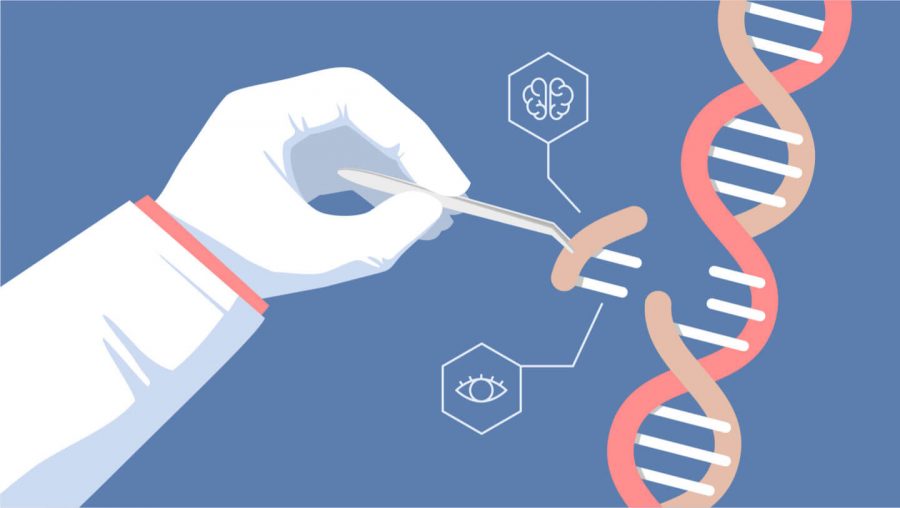CRISPR Gene Editing Used on Humans in the U.S.
May 10, 2019
The first human trials in the United States for CRISPR gene editing have officially gone underway. The University of Pennsylvania in Philadelphia spokesman confirmed to numerous sources, including NPR, that two cancer patients – one with myeloma and the other with sarcoma, have received the treatment after the standard procedures did not hold.
The CRISPR trial removes, modifies, and reinserts immune cells in hopes that it’ll be able to destroy cancerous cells. It’s not certain how effective the treatment may be, and the information will not be fully open for studies until it has been cleared to treat a total of 18 patients. Other trials, such as ones for blood disorders in the Boston area, have yet to get underway. According to the University of Pennsylvania, “You won’t hear about it until there’s been a presentation or a peer-reviewed paper.”
The official trial was first greenlit in 2016 by the National Institutes of Health (NIH), aiming to recruit at least 18 participants to test how effective the therapy treatment is against three specific forms of cancer.
The human immune system is an astonishing evolutionary adaptation that fights off all manners of invaders. In the battle against cancer, it doesn’t always fare so well – one of the main reasons why cancer is particularly good at evading destruction and slamming the “brakes” of the immune system.
In this trial, the immune cells are removed from a patient and three edits are made to the DNA by CRISPR. These edits allow for the cells to more “readily attack a tumor,” inhibiting the brakes and allowing cells to fight off cancer. Once the edits are made in the lab, the patient’s cells are infused back into their body.
Despite all circumstances, any practical uses could take a long period of time. There have been widespread controversial claims and concerns that CRISPR editing could have “unanticipated effects,” and scientists have yet to try editing cells while they’re still in the body. With this being said, a blindness trial in Cambridge, Massachusetts, may be the first instance. There’s also the not-so-small matter of ethical questions. Before assuming that CRISPR gene editing is even an option, politicians and scientists from all over the world likely want to address practices like that before applying it.
Preliminary results from this certain study suggest that the therapy is safe, but further studies and a larger sample size will be necessary to explore its effectiveness.
Graphic courtesy of GENENGNEWS.COM

